In this article, we compare canola oil vs olive oil and help you decide which one is better for your health and everyday cooking.
Cooking Fats
Cooking fats are an essential part of every kitchen and the foundation for just about every savory dish. An incredible soffritto always starts with guanciale, bacon, duck fat, or EVOO. Onion, carrot, and celery sizzle away and then the seasonings are added building layers of flavors and building the foundation for an epic bolognese, soup, or beans.
Fats are the vessel for transporting flavor and seasoning and have a significant impact on our health. And some can be really great for you, while others not so much.
Consumers are growing increasingly concerned about how cooking fats impact their long term health. One of the most common concerns is smoke point. Therefore, it's important that we have a good understanding of the cooking fats we introduce into our homes and kitchens. Let's dive in.

Canola Oil vs Olive Oil
Consumers want to know, which is better for everyday cooking. While both cooking fats can be used for everyday cooking, olive oil offers far better health benefits, flavor, and depth.
To fully compare the two fats, let us take a look at how each product is made, the health benefits, refinement process, packing, and more.
Difference in Price
If you peruse the grocery store you'll find the cooking fat aisle can be a pretty overwhelming place. There's a huge selection to choose from and it can often feel like gambling, just pick a bottle and hope for the best. But it doesn't have to be this way.
As you look at the prices of products you'll notice a huge price difference between canola and olive oil. This is due to how the products are produced, the level of refinement, and the labor it takes to make each product.
What is Canola Oil?
Canola (rapeseed) oil is chemically extracted from the rapeseed plant. It's a very old food and researchers believe humans have been producing it for over 4,000 years.
The product is chemically extracted from the rapeseed plant using a solvent called hexane. And an RBD, short for refined, bleached, deodorized.
It's heavily refined and requires the use of water precipitation and organic acid to remove free fatty acids, color, and gums. In addition, steam distillation is used to deodorize the product.
It is possible to find cold extracted versions, which aren't chemically extracted, however, they're very expensive and hard to find.
Smoke Point
It has a smoke point of up to 400⁰F which is much lower than the smoke point of OO. However, that's more than enough for everyday cooking like sauteing vegetables or even frying. Read more about smoke point here.
The Rapeseed Plant
The rapeseed plant is a green, thin plant with yellow flowers. It's part of the Brassicaceae family. Today the plant is grown around the world including India, China, Canada, United States, Denmark, Germany, France, and Poland.
What are the Health Benefits?
Canola oil is rich in monounsaturated and polyunsaturated fats, which are known to be heart-healthy. However, it also contains erucic acid, which can be harmful in high doses. Health benefits include:
- Lowers cholesterol levels
- Rich in omega-3 fatty acids
- Contains vitamin E and K
- Anti-inflammatory properties
- High in monounsaturated
- High in polyunsaturated fats
Unfortunately, there are some downsides to the product. These include the following:
- It also contains erucic acid, which can be harmful in high doses.
- Is extracted using harsh chemicals, which can leave behind harmful residues.
- It has a relatively high level of Omega-6 fatty acids, which in excess, can increase inflammation in the body.
- It's often genetically modified, which may have long-term health consequences.
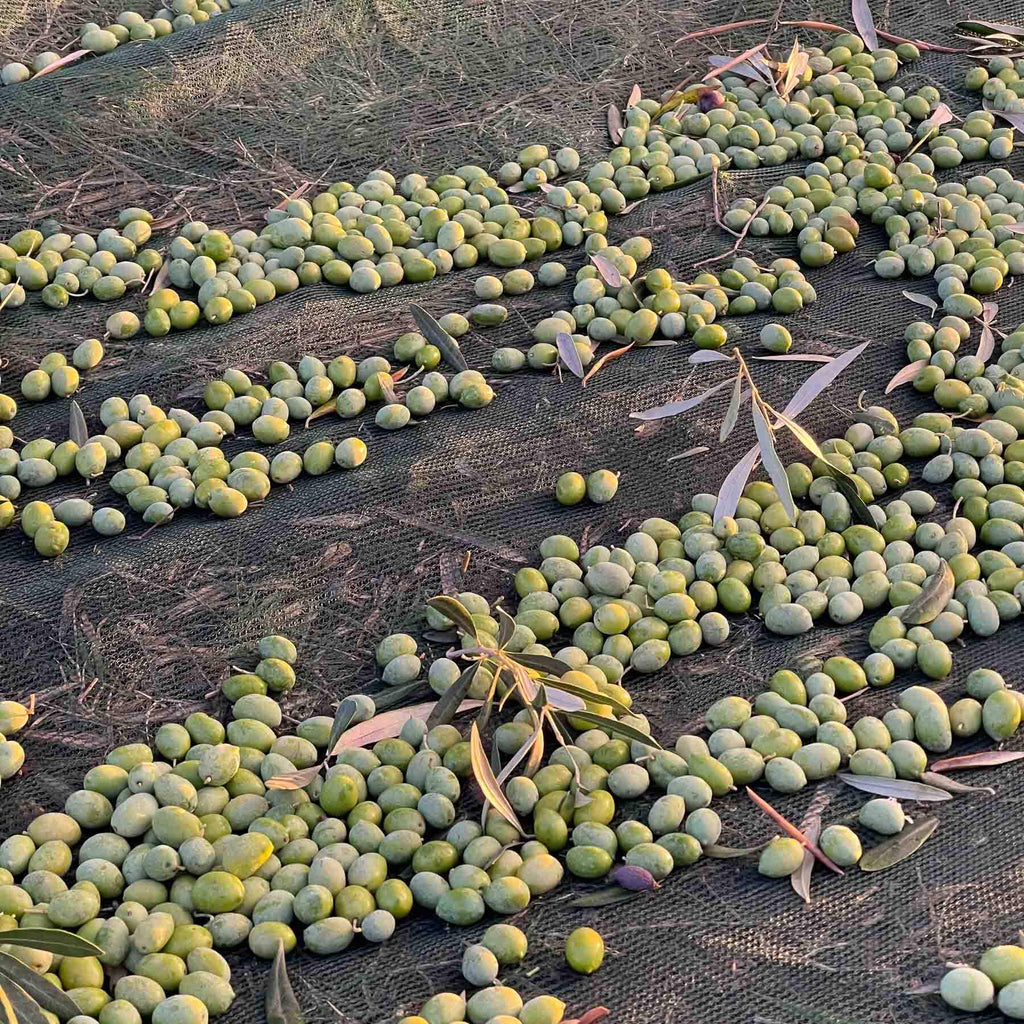
What is Olive Oil?
Olive oil is mechanically extracted from the olive fruit. Human beings have been producing and consuming it for thousands of years. In fact, researchers found a glass bottle containing what appears to be some ancient liquid gold from the Vesuvius eruption in 79 A.D.
In order for the product to qualify as extra virgin more stringent measures, such as sensory profiles and lab tests, must be met. It smoke point is up to 470⁰F making the product ideal for high heat cooking. It's also perfect for frying foods like chicken and fritters. Read more about smoke point here.
Olive oil is mechanically extracted from the fruit using a mill without the use of heat or chemicals, making it an unrefined product.
During the milling process the fruit goes through the chopper, crushed (malaxer), and finally the centrifuge or what some people call the 'press'. The centrifuge is a a machine that separates OO from vegetable water and other waste, such as pits and skin.
Extra virgin and virgin products are not further refined.
The Olive Tree
Originally from the middle east, it's believed that the tree was brought to Greece and then to Italy and the rest of the Mediterranean basin many millennia ago.
Today it grows on almost every continent and is used for both farming and aesthetic purposes. The fruit is harvested and used for a variety of purposes including human consumption and hygiene products!

What are the Health Benefits?
Olive oil has a myriad of health benefits including:
- High in polyunsaturated fats
- Promotes cardiovascular health
- Supports brain health
- Antioxidant-rich
- Reduces the risk of heart disease
- Contains antioxidants
- Anti-inflammatory properties
- May aid in weight loss
In addition, it potentially prevents:
- Alzheimer's disease
- Certain types of cancer
Unfortunately, there are some downsides to the product. This includes:
- It is relatively expensive compared to other cooking oils.
- It has a distinct flavor, which may not be suitable for all types of dishes.
FAQs
Here are some frequently asked questions about both products.
Can You Substitute Canola Oil for Olive Oil?
Yes, you can substitute in most recipes. However, keep in mind that canola oil has a neutral flavor. While OO has a distinct, vibrant flavor, therefore, will lend more depth and flavor to all dishes.
This particularly important to take into consideration when it comes to baking sweets such as cookies, brownies, and cakes.
Is Canola Oil Better than Olive Oil?
No. Canola oil is high in monounsaturated and polyunsaturated fats, making it technically a heart-healthy option.
Olive oil, on the other hand, is rich in antioxidants and anti-inflammatory compounds, making it a better choice for reducing the risk of chronic diseases. It also has better and deeper flavor.
Is Canola Oil Bad for Your Health?
It's generally considered safe for consumption. However, it's extracted using harsh chemicals, which can leave behind harmful residues. Additionally, it's often genetically modified, which may have long-term health consequences.

Can I Use Both Fats Interchangeably in Recipes?
Yes, you can. However, this is a personal preference. OO will provide much more flavor and better health benefits. In addition, it has a higher smoke point so is a more well rounded product.
Which Has a Higher Smoke Point?
Canola oil has a smoke point of 400⁰F while olive oil has a smoke point up to 470⁰F making it a better overall cooking fat for high heat cooking making it more versatile. Read more about smoke point here.
Is it True that Most Olive Oil on the Market is Not Pure?
No, this is not true. OO available to consumers in the US has been extensively tested over the years by multiple sources including the NAOOA and the FDA. However, it's always best to buy products from brands and companies that you know and trust, like EXAU!
Read more about fake products here.
Can You Substitute for Other Cooking Fats?
Yes, however, the best option for both cooking and finishing is EVOO. But here are some additional comparisons, Coconut vs OO and Avocado vs OO.
Shop our collection of high-quality Italian EVOO today!
You might also like…
How to Tell if Your OO is Fake
Hey, we wrote a book all about our favorite cooking fat. If you want to learn more get your copy today!
If you learned something new or have opinions on this topic, please leave a comment and let us know your thoughts! We love to hear from you. If you’re on Instagram, TikTok, or Facebook don’t forget to tag us and use #EXAUoliveoil so we can repost!
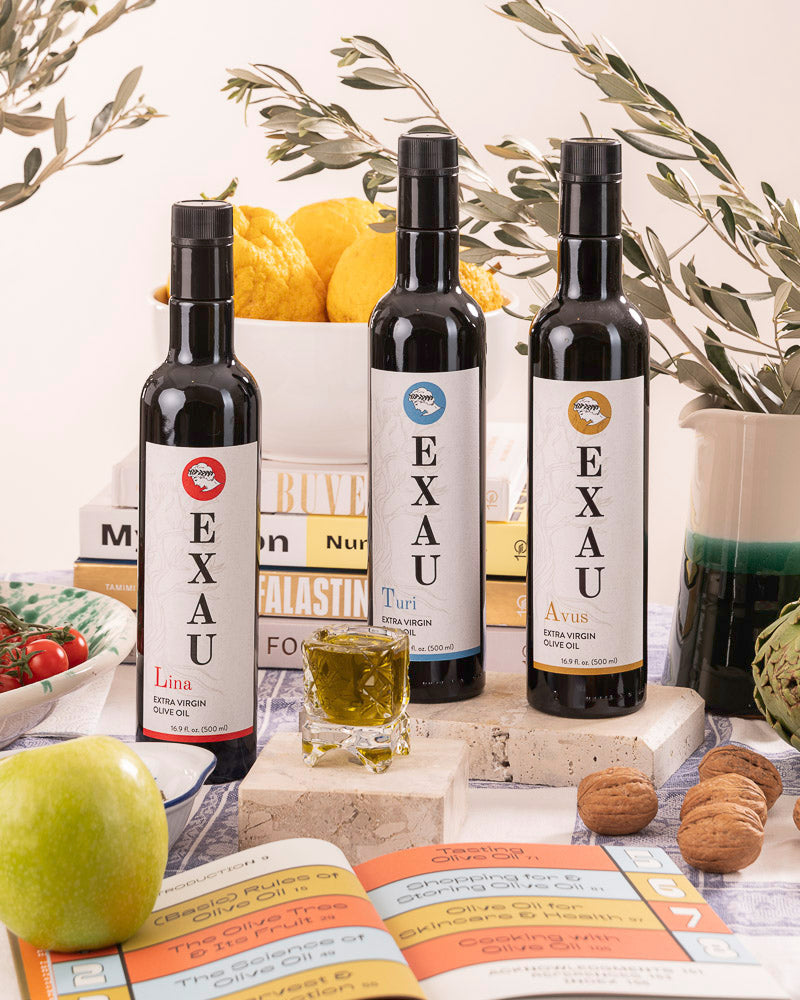
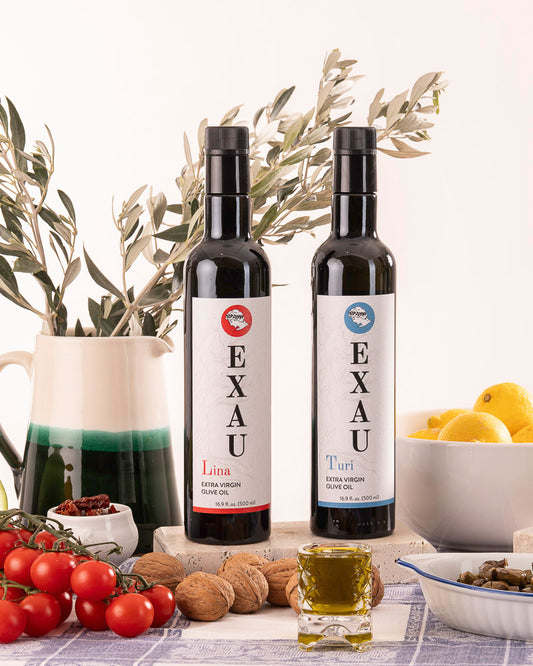
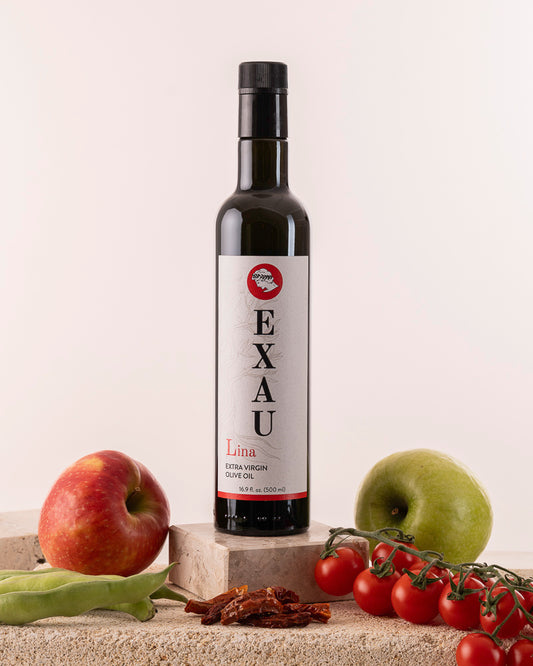
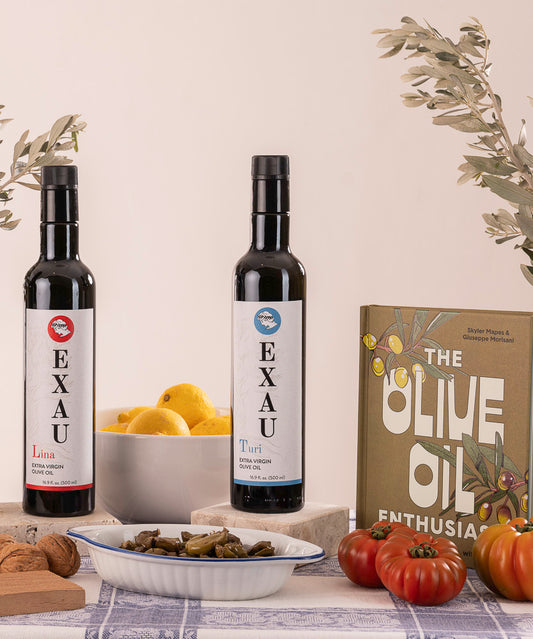
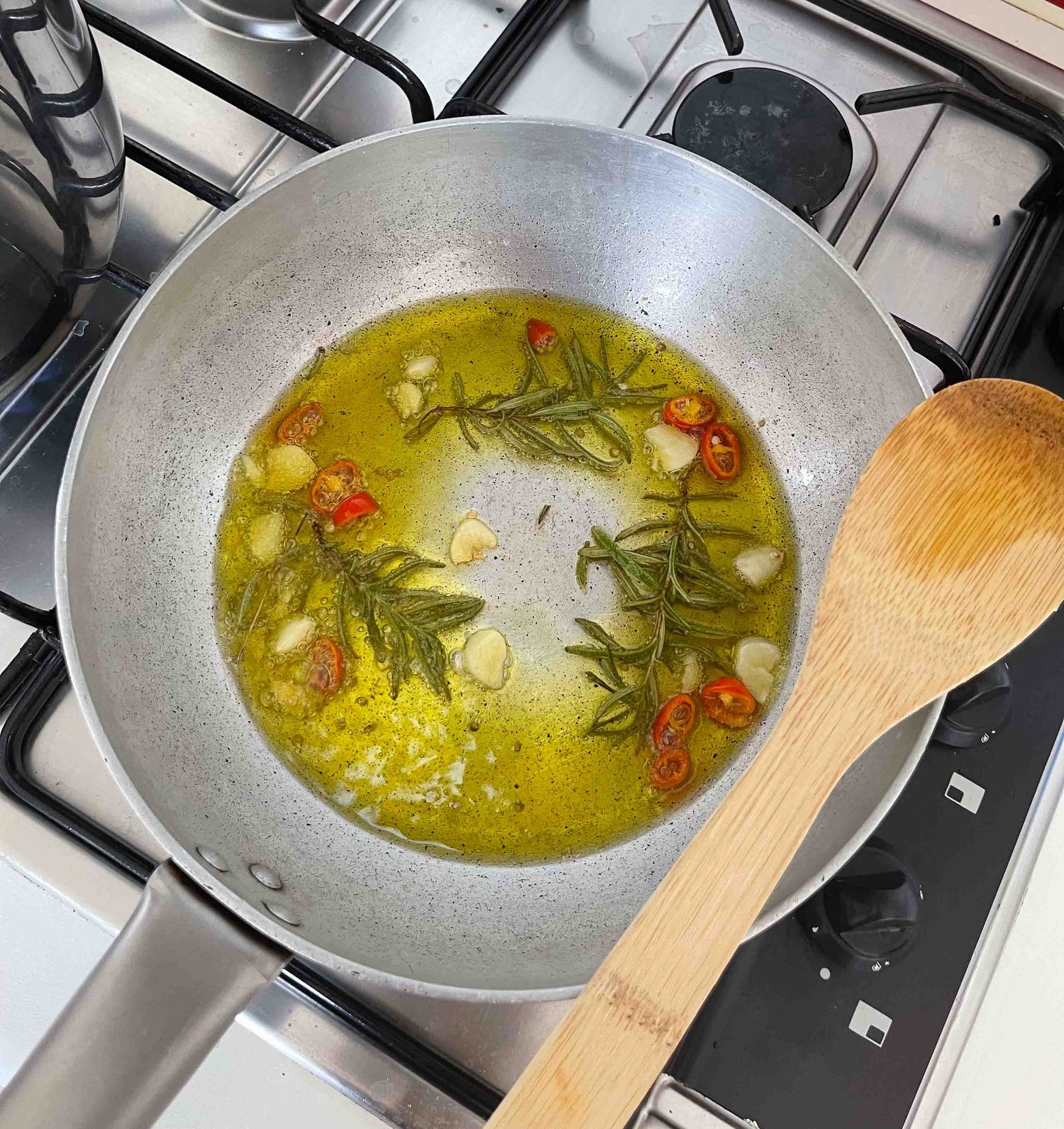
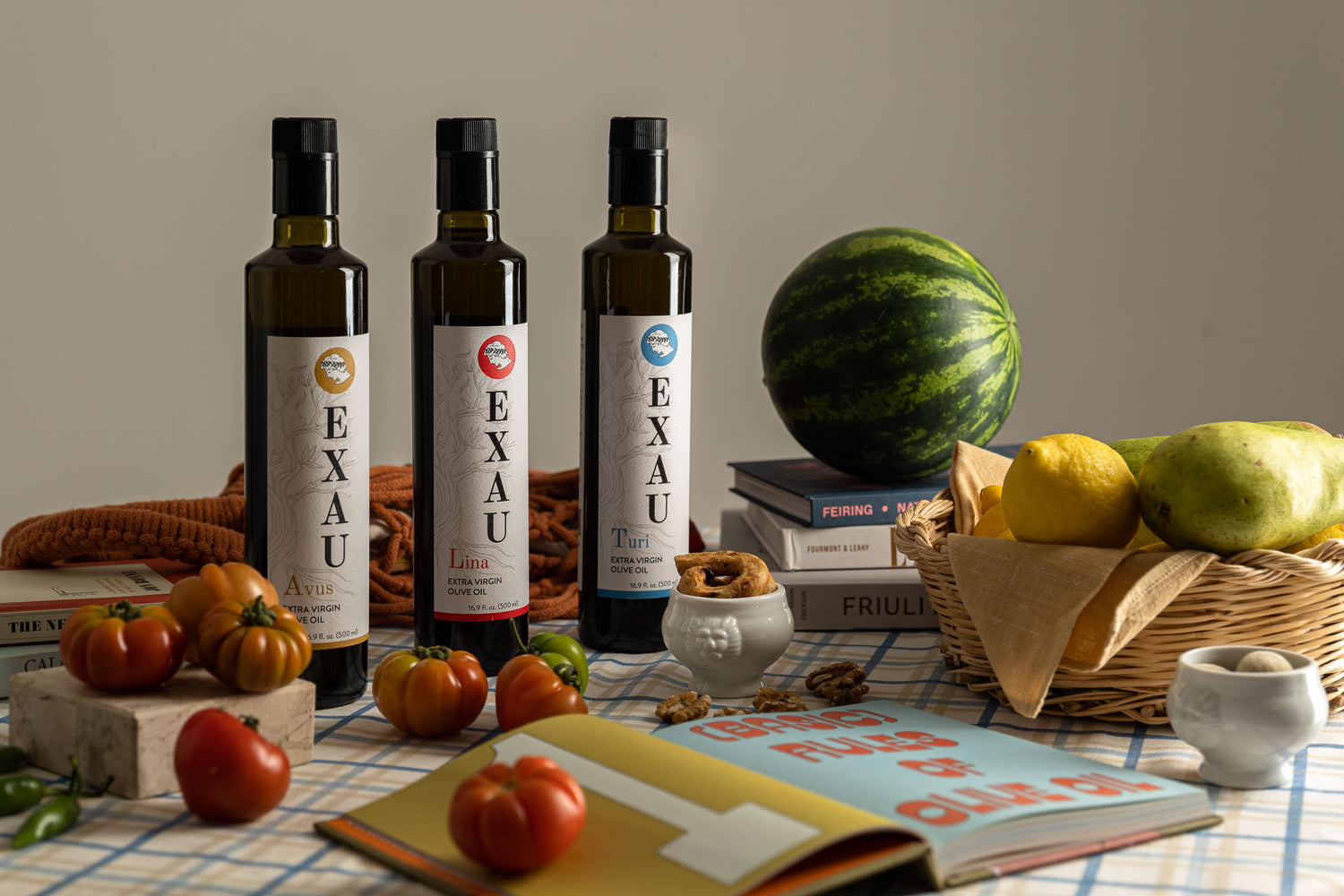
3 comments
Report educated me on ways to use Olive Oil for cooking! Much Appreciated!
Only on word define the article ‼ Excellent‼
No comments, just to say thank you for you clear report